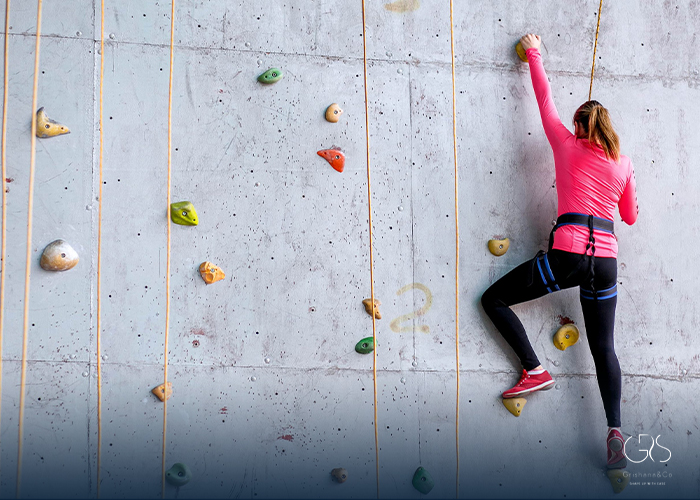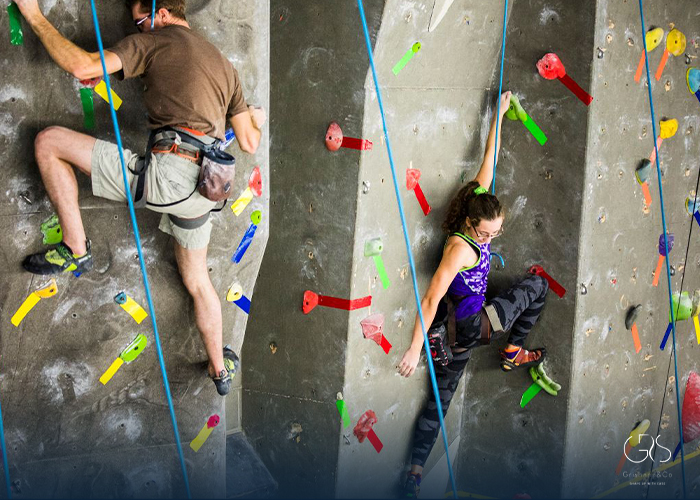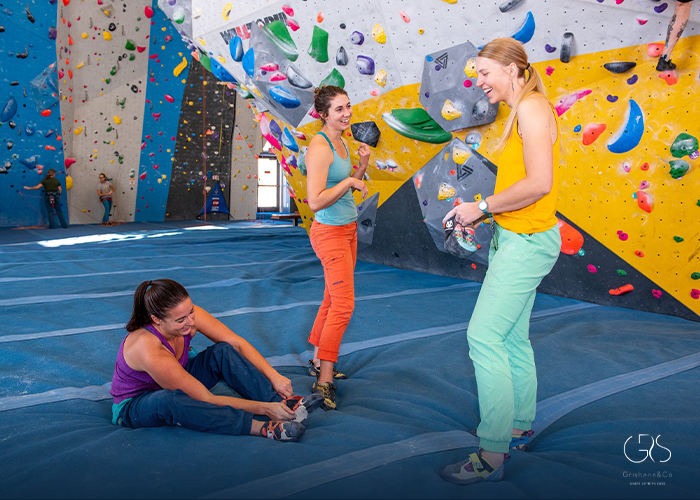Rock climbing, once considered an extreme sport, has gained popularity in recent years as both a recreational activity and a way to stay fit. Beyond the thrill of scaling cliffs and boulders, rock climbing offers numerous health benefits for physical and mental well-being. In this article, we will explore the various health benefits of rock climbing and provide a comprehensive guide on how to get started in this exhilarating sport.
Health Benefits of Rock Climbing
1.Strength Building: Rock climbing is a full-body workout that engages muscles in the arms, legs, back, and core. Climbing regularly helps in building muscle strength and endurance. According to a study published in the Journal of Sports Science & Medicine, rock climbing was found to significantly increase upper body strength and grip strength.
2.Cardiovascular Fitness: Climbing involves constant movement and requires both endurance and cardiovascular fitness. As climbers ascend steep walls and cliffs, their heart rate increases, providing an excellent cardiovascular workout. A study conducted by the American College of Sports Medicine found that rock climbing can improve cardiovascular health and overall fitness levels.
3.Improved Flexibility: Rock climbing requires climbers to use a wide range of motions and stretch their muscles. This helps in improving flexibility and range of motion in joints. Regular climbing sessions can contribute to better overall flexibility.

4.Mental Health Benefits: Climbing outdoors allows individuals to connect with nature and experience a sense of tranquility. The focus and concentration required in climbing also promote mindfulness and stress reduction. Research published in the Journal of Clinical Psychological Science suggests that rock climbing can help reduce symptoms of anxiety and depression.(Read more about Signs and Symptoms Depression)
5.Weight Loss: Rock climbing is a high-calorie burning activity that can aid in weight loss and weight management. Climbing helps in boosting metabolism and burning calories at a faster rate than traditional exercises. According to a study in the Journal of Obesity, activities like rock climbing can contribute to weight loss and improved body composition.
6.Social Interaction: Rock climbing is often done in groups or with partners, encouraging social interaction and teamwork. Climbers often form strong bonds with their climbing buddies, fostering a sense of community and belonging.
How to Get Started in Rock Climbing
- Find a Climbing Gym: Start by researching climbing gyms in your area. Climbing gyms provide a safe and controlled environment for beginners to learn the basics of climbing. Many gyms offer classes and equipment rental for newcomers.

- Take a Beginner Course: Enroll in a beginner course or hire a certified climbing instructor to learn the fundamentals of climbing, including proper techniques, safety procedures, and equipment usage. These courses are essential for building a strong foundation in climbing.
- Invest in Proper Gear: Climbing requires specialized gear such as climbing shoes, harness, carabiners, and ropes. Invest in high-quality gear that fits properly and ensures safety while climbing.
- Start with Easy Routes: Begin by climbing easy routes graded for beginners. Focus on building your skills and confidence gradually before attempting more challenging climbs.
- Join a Climbing Community: Connect with other climbers through online forums, social media groups, or local climbing clubs. Climbing communities provide support, resources, and opportunities to learn from experienced climbers.
- Practice Consistently: Like any other sport, progress in climbing comes with practice. Make climbing a regular part of your fitness routine and set achievable goals to track your improvement.
Conclusion:
Rock climbing offers a range of physical, mental, and social benefits for individuals of all ages and fitness levels. By incorporating climbing into your lifestyle, you can achieve greater strength, endurance, flexibility, and overall well-being. Whether you are seeking a new challenge or simply looking to stay active, rock climbing is a rewarding activity that can transform both your body and mind.
Sources
- National Library of Medicine, Effects of Rock Climbing Exercise on Physical Fitness among College Students: A Review Article and Meta-analysis
- Everyday Health, Rock Climbing Workout: Health Benefits, How to Get Started, and How to Get Better











